The Pre-Health Sciences Pathway program is a stepping stone to a career in nursing, practical nursing, paramedicine, dental health, ultrasound or radiation technology. If you’re considering a health program in college or university, this certificate can enhance your qualifications for admission and boost your success in future studies.
NOTE: This program is available to domestic students only.
Pre-Health Sciences Pathway to Advanced Diplomas and Degrees (PRED)
This program is for students planning to enter a three-year advanced diploma program or four-year university degree program.
Find your career
- The Pre-Health Sciences Pathway program can be a bridge to health science programs, including two-year diplomas such as Practical Nursing and Paramedic.
- Graduates who meet program-specific requirements, including minimum grade average, may be eligible for admission to the Nursing – Honours Bachelor of Science program.
- For admission requirements, please refer to your college or university program of choice.
- Nursing programs remain competitive and the grade average for entry varies based on number of applicants.
Is it for you?
This program is geared to high school graduates and mature students who:
- Need to improve their marks or complete the required science credits to gain admission to their program of choice
- Have been out of school for a few years and want to be better prepared for further studies
- Love science and the outdoors
- Want to improve their chances of success in a university or college health program
Experiential learning
Upgrade your skills and knowledge through hands-on activities:
- Learning combines laboratory studies, classroom instruction and outdoor lab exercises including a fungi or plant study.
- Take an EcoWalk – a virtual learning experience.
- Calculate your ecological footprint and create a sustainability plan to decrease your environmental impact.
- Conduct labs in inorganic chemistry, food biochemistry, blood analysis, microscope studies and dissection.
- A common first semester, including six required courses, permits all students to explore skills and options.
- Individual meetings with the program coordinator prior to the second semester will help students decide which stream best suits them and their career goals.
Outstanding faculty make the difference
- Get practical career guidance and personal attention from experienced faculty.
- Professors have a passion for hands-on instruction with a focus on outdoor education and blending emerging technology with experiential learning.
- Faculty backgrounds range from applied arts to biology and kinesiology.
- Study with teachers who are known for their love of drawing in class – everything from hearts to proteins – and for their math parties (small group tutorials).
- First Year - Semester One
- BIOL1000 Biology
-
This course is an introduction to biology discussing evolution of cells, cell biology, microbes, fungi, the plant kingdom, the animal kingdom and homeostasis from the cellular level through to the biosphere. Students gain an understanding of the cycles of life and the importance of maintaining the ecological balance required to ensure the health of all living things.
- CHEM1005 Chemistry
-
An introduction to chemistry, including: measurement; matter and energy; atoms and the periodic table; and bonding. It is primarily a study of inorganic compounds and chemical reactions with a brief look at simple covalent molecules. An understanding of scientific procedure and terminology will be gained through classroom discussions and laboratory experiments.
- COUN1032 Interpersonal Psychology
-
This course is designed to increase your understanding of yourself, others and their interaction processes. Three main areas of human relations theory will be addressed: i) interpersonal communication; ii) self-concept, self-esteem and personality; and iii) values, goals and personal excellence.
- COMM1019 Introduction to Language Theory & Composition
-
This introductory course focuses on the study of language. Students improve their writing skills by summarizing and critiquing articles as well as writing reports. The course also assists students in improving their editing skills with the use of in-class exercises.
- MATH1013 Mathematics 1
-
Topics covered include whole numbers, fractions, decimals, proportion, percent, measurement, algebra, and statistics. The course uses application problems that are appropriate for students who are preparing for programs in health sciences, technology and business.
- COUN1031 PreHealth Science Seminar
-
This course will help you to understand and improve the academic skills required for postsecondary success. Topics covered include goal setting, time management, critical thinking, reading, studying and test-taking strategies, and portfolio development.
- First Year - Semester Two
- COMM1020 Advanced Language Theory & Composition
-
This course focuses on the acquisition and cultural context of language. Students continue to work on writing and editing skills with advanced exercises and applications in sentence, paragraph and essay development.
Prerequisite: COMM 1019
- PREH1000 Bio & Chem Health Tech Lab
-
This course is an introduction to laboratory techniques for chemistry and biology courses. This course aims to provide students with the foundational laboratory skills to safely and efficiently work in a laboratory setting. Laboratory exercises provide students with practical knowledge to apply to classroom content and an introduction to the field of health research.
Prerequisite: CHEM 1005, BIOL 1000
- BIOL1005 Human Biology
-
Students will study and explore human biology from tissue level through organs, organ systems and organism. Relationships between genetics, microbiology, anatomy and physiology will be applied through an exploration of all the human systems.
Prerequisite: BIOL 1000
- CHEM1008 Organic And Biochemistry
-
Students undertake an advanced study of organic and biochemistry. Students will demonstrate correct structures and chemical equations, which illustrate the actions of these carbon compounds in the environment and within the human body. An in-depth look at nutrition and the biochemical reactions, which accompany cellular actions leading to a deeper understanding of homeostasis at the molecular level.
Prerequisite: CHEM 1005
- MATH1050 Statistics for Health Sciences
-
Students will use numerical methods to calculate measures of centre and variation, along with graphs, charts, and tables to effectively describe, analyze and interpret data. Empirical and theoretical probability of simple events using key rules of probability will be calculated. Students will distinguish between discrete and continuous probability distributions and describe key features of the standard normal distribution. Students will calculate probabilities and values using the standard normal distribution, and calculate confidence intervals for means and proportions and apply descriptive and inferential statistics to the health care field.
Prerequisite: MATH 1013
- First Year - Semester Two (Elective Group 1 )
- PHYS1000 Introduction to Physics
-
This is an introductory course in physics including investigation of Newtonian mechanics, thermodynamics, waves and sound, electricity and light. Students gain a solid understanding of the interaction of the elements of each of these subjects. They gain and understanding of mechanisms that govern the physical world, and perform calculations to simulate the behaviour of physical systems.
- PSYC1016 Psychology 1
-
This course is an introduction to the principles of psychology, which provides a sound foundation for study in the advanced area of psychology. Key principles to be addressed include learning theory, motivation, emotion, personality, attitudes and abnormal behaviour.
- SOCI1021 Sociology 1
-
This introductory course is aimed at providing students with some of the key concepts regarding our society and culture. The course is designed to help students become more aware of their own location within our culture.
- Notes
- Select 1 courses from above
*Courses subject to change.
Health studies at Loyalist
A Pre-Health Science certificate is a strong foundation for further study. Click here for more information about university transfer agreements.
- Graduates who maintain a minimum average of 75% and meet specific entrance requirements are eligible to be considered for admission to the four-year Nursing – Honours Bachelor of Science program.
- Applicants who have successfully completed the Pre-Health Science certificate are eligible to apply for Loyalist’s Practical Nursing diploma program.
- Students must apply through ontariocolleges.ca before February 1 to be considered for September entry.
- Note: Nursing and Practical Nursing are high-demand programs; possession of the minimum admission requirements does not guarantee an offer of admission.
- Graduates can also train to be first responders with a two-year Paramedic diploma.
- Credits in this program are transferable to a diploma in General Arts and Science – earn your diploma in just one more year.
- Graduates of the Pre-Health Sciences Pathway to Advanced Diplomas and Degrees certificate program are eligible to pursue a Bachelor of Health Sciences (Honours) Degree at Queen’s University through online learning.
How much will it cost?
Approximate costs (2023 – 24)
- Domestic Tuition: $2,722.08
- Full-Time Ancillary Fees:* $1,308
- Total: $4,030.08
- Additional Program Costs: $587
Additional costs, such as supplies, travel and parking, may be incurred during workplace visits, etc.
*Fees related to programs that are less than or greater than two semesters will be adjusted accordingly. Fees are subject to change. Please visit the Tuition and Fees web page for a list of the many services, activities and items included within the ancillary fees, and the related policies.
Bursaries and financial assistance
Loyalist has a number of scholarships, bursaries and academic awards available to students. Our Financial Aid Office can help you explore your options, or assist you with a student loan.
Admission requirements
NOTE: This program is available to domestic students only.
Required academic preparation
- OSSD/OSSGD or equivalent with courses at the general, advanced, (C), (U) or (M) level, AND
- Grade 12 English (C) level or equivalent
OR
Recommended academic preparation
- Grade 11/12 Biology, Chemistry and Mathematics
Prior learning assessment and recognition
Applicants with work experiences or other types of non-credentialed learning may be eligible for credits at Loyalist. Graded credits (as opposed to exemptions) are granted. Click here for more information about our assessment and credit challenge process.
Campus News
LOYALIST COLLEGE STUDENTS ADMINISTER COVID-19 VACCINES AT BELLEVILLE C...
 Belleville, Ontario, May 13, 2021 – Loyalist College students began administering COVID-19 vaccines at the College’s Immunization Centre this week. Directed by Hastings Prince Edward Public Health... Read More
Belleville, Ontario, May 13, 2021 – Loyalist College students began administering COVID-19 vaccines at the College’s Immunization Centre this week. Directed by Hastings Prince Edward Public Health... Read More
LOYALIST COLLEGE SIGNS PATHWAY AGREEMENT WITH QUEEN’S UNIVERSITY
 Belleville, Ontario, April 6, 2018 – Loyalist College and Queen’s University have signed a pathway agreement which provides graduates of the College’s Pre-Health Sciences Pathway to Advanced Di... Read More
Belleville, Ontario, April 6, 2018 – Loyalist College and Queen’s University have signed a pathway agreement which provides graduates of the College’s Pre-Health Sciences Pathway to Advanced Di... Read More
Passion in Program

By Lee McMurray
Whether you want to explore your career options or enhance your academic skills, the General Arts and Science program at Loyalist College has something for everyone. I am ... Read More
Loyalist Practical Nursing Graduates Achieve 100 Percent Success Rate

Practical Nursing graduates from Loyalist College wrote the Canadian Practical Nurse Registration Exam following graduation and were 100 percent successful. The registration exam must be taken in ord... Read More
In the News
 Academica Group
Academica Group
 Belleville Intelligencer
Belleville Intelligencer
 Quinte News
Quinte News
 Queen's University
Queen's University
 Belleville Intelligencer
Belleville Intelligencer
Sustainability Project Assignment
Students were tasked with choosing an action or several actions they could perform that would decrease their environmental impact or ecological ‘footprint’ and ultimately improve the sustainability of humans on Earth. They were challenged to consider simple, daily actions that, done on a consistent basis, could bring about positive change.
Download PDF
Sustainability Project – Calvin Kerr
Pre-Health student Calvin Kerr completed a sustainability experiment he designed for himself and upon its completion he retook the ecological footprint test. By making three simple changes – buying locally grown or raised food, changing his showerhead and unplugging for an hour per day – he reduced his ecological footprint from 1.97 to 1.57 Earths.
Download PDF
Sustainability Project – Thomas McCory
For his class project, Thomas McCory looked at the aspects of his everyday life where he was consuming – areas such as food, water, electricity and fossil fuels. He decided to concentrate on water, with some effort towards reducing his daily dependence on fossil fuels.
Download PDF





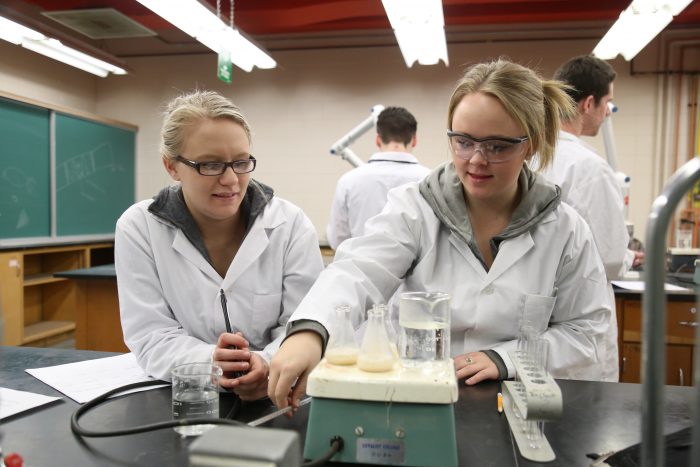
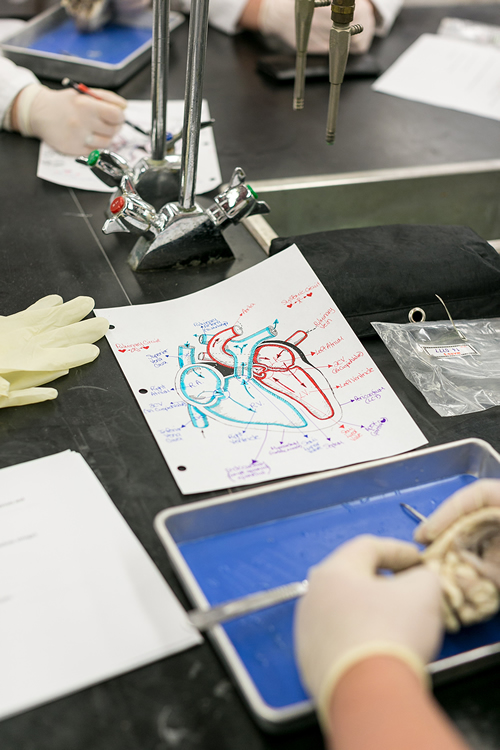
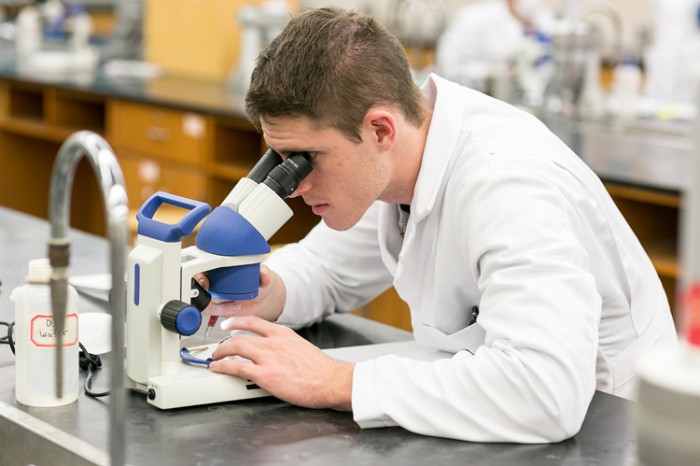
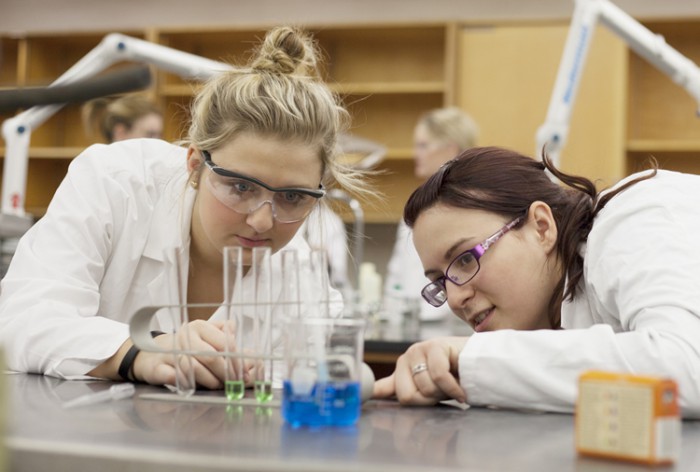
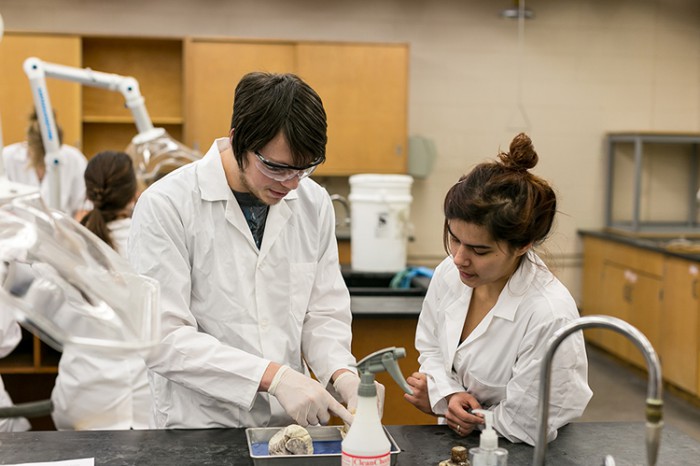

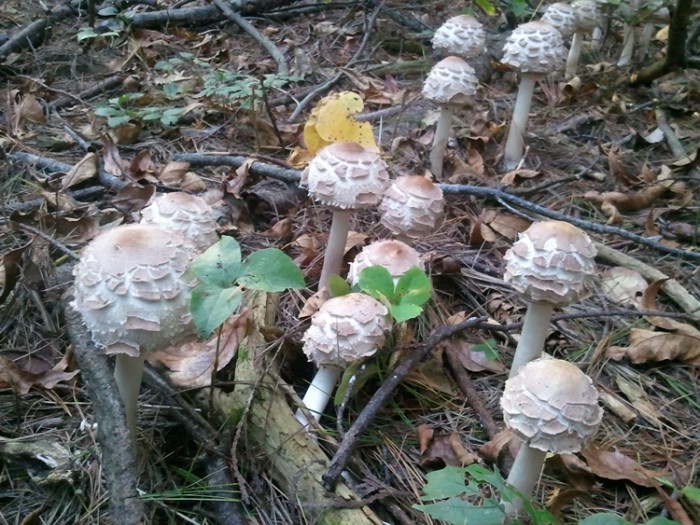
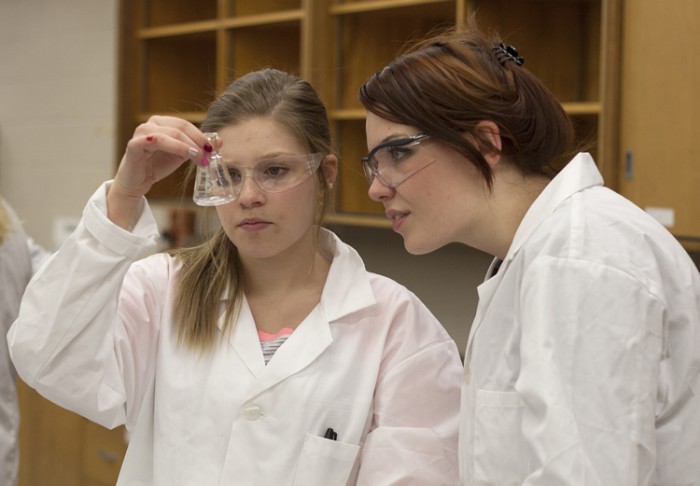
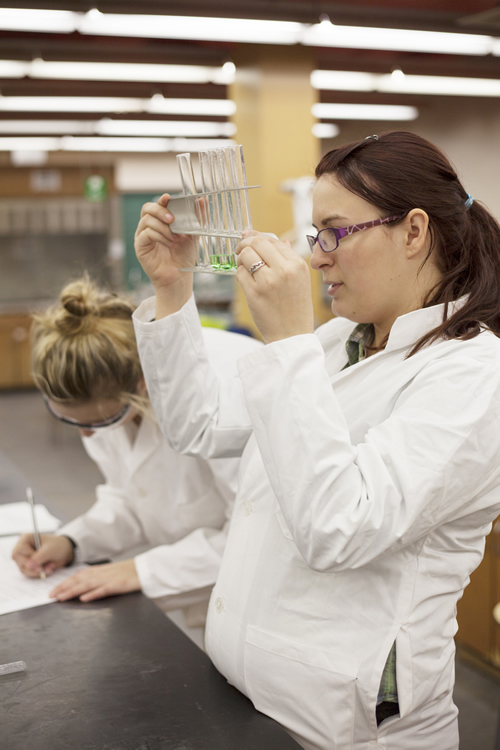
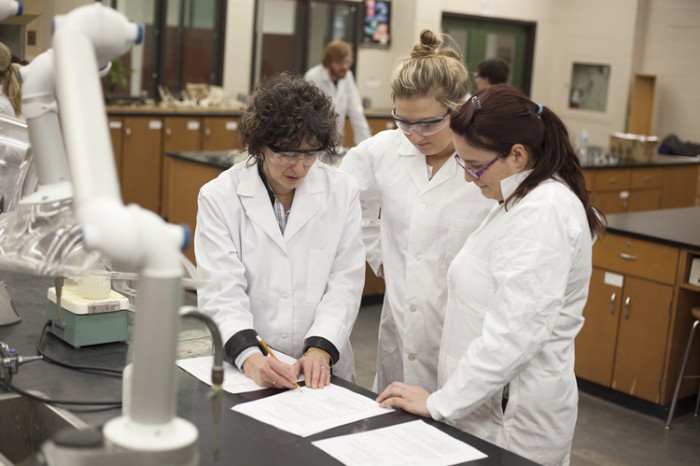
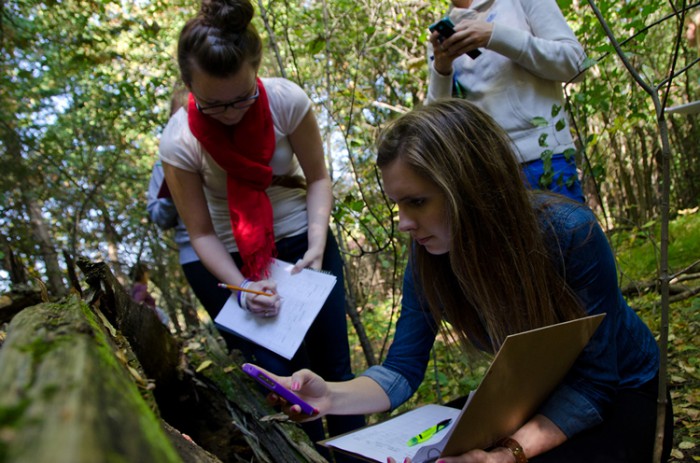
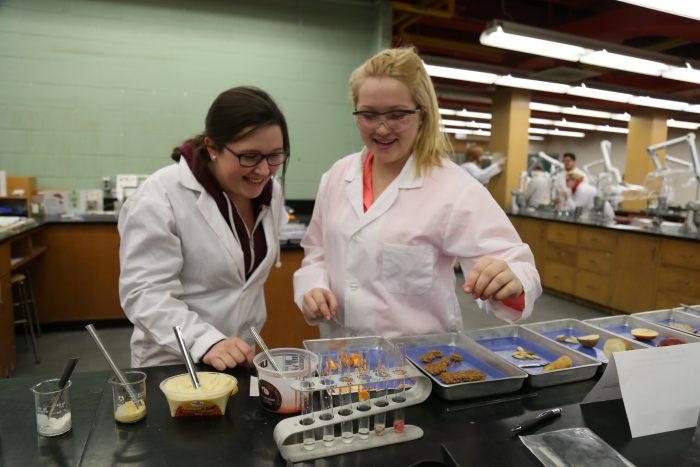
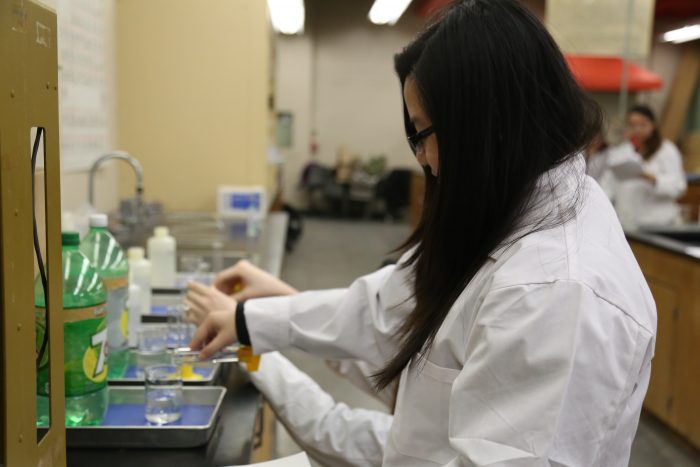
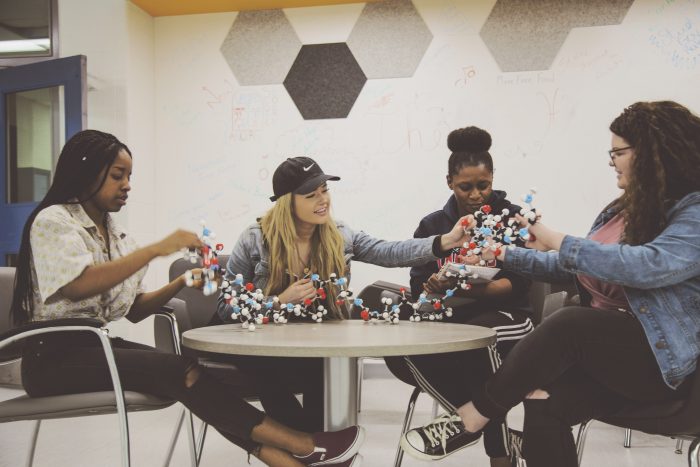
 Belleville, Ontario, May 13, 2021 – Loyalist College students began administering COVID-19 vaccines at the College’s Immunization Centre this week. Directed by Hastings Prince Edward Public Health...
Belleville, Ontario, May 13, 2021 – Loyalist College students began administering COVID-19 vaccines at the College’s Immunization Centre this week. Directed by Hastings Prince Edward Public Health... 